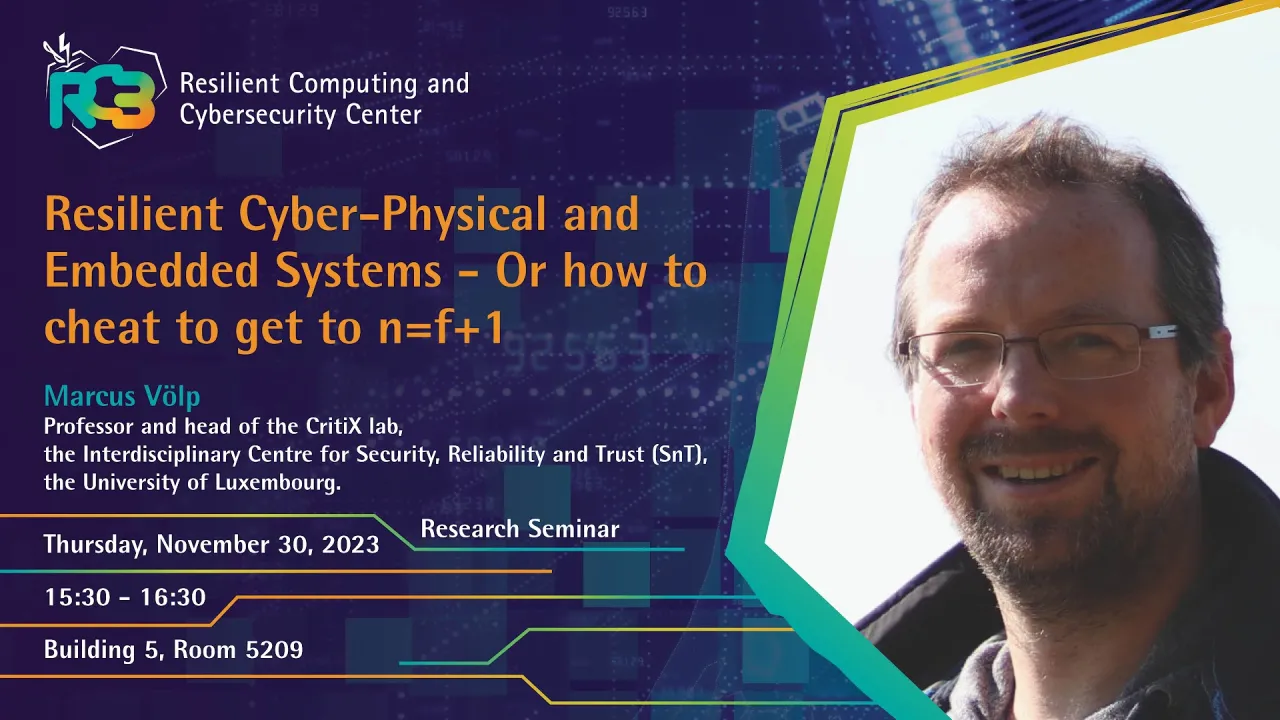
Resilient Cyber-Physical and Embedded Systems - Or how to cheat to get to n=f+1
Our society keeps entrusting ICT systems with high value cyber-only assets, such as our most sensitive data, finances, etc. However, when it comes to cyber-physical systems and their ability to act in and with the physical world, lifes are at risk and require rigorous protection against accidental faults and cyberattacks.
Overview
Abstract
Our society keeps entrusting ICT systems with high value cyber-only assets, such as our most sensitive data, finances, etc. However, when it comes to cyber-physical systems and their ability to act in and with the physical world, lifes are at risk and require rigorous protection against accidental faults and cyberattacks. In this talk, I will share my view how future cyber-physical and embedded systems should be constructed, connected to the edge and both kept secure by ensuring they can safely tolerate and operate through incidents of a arbitrary nature. In particular, I would like to share some recent results on autonomous driving and on how to secure the very heart of cyber-physical systems, namely their control algorithms, with just n=f+1 replicas.
Brief Biography
Prof. Dr.-Ing. Marcus Völp received his PhD in computer science in 2011 from Technische Universität Dresden. His research interests include methods, tools and system architectures for constructing resilient cyber-physical and embedded systems for a wide variety of application domains and at various levels of the hardware-software stack, from Industry 4.0 over autonomous vehicles to space and from microkernels and microkernel-based systems to distributed algorithms. Guarantees must be given concerning real-time, security (including information-flow) and dependability, in particular in the presence of attacks to achieve Byzantine fault and intrusion tolerance and resilience of systems that operate autonomously and are unattended for extended periods of time.
Before joining SnT in September 2015, Dr. Völp has been research group leader at the the cluster of excellence – Center for Advancing Electronics Dresden and visiting scholar at the Logical Systems Group of Prof. Platzer at Carnegie Mellon University. Since 2021, he is head of the CritiX lab of the Interdisciplinary Centre for Security, Reliability and Trust (SnT) at the University of Luxembourg. Prof. Völp is senior member of the IEEE, member of the IFIP 10.4 working group on dependability and member of the technical committee of the Euromicro Conference on Real-Time Systems (ECRTS).